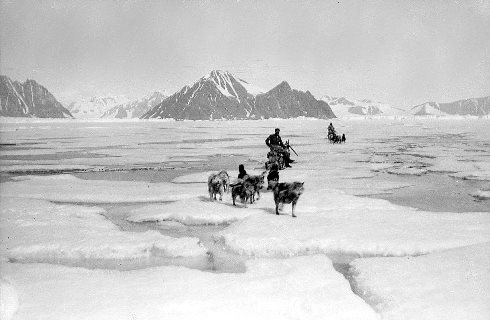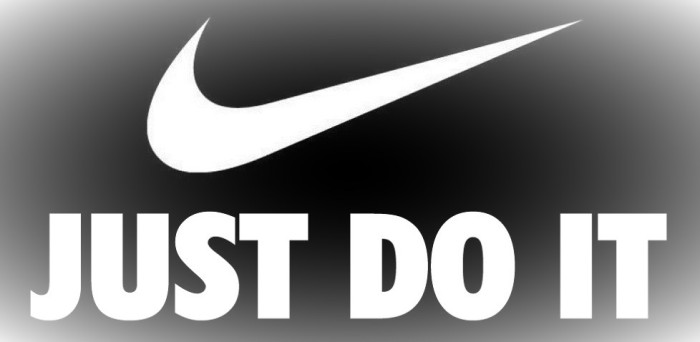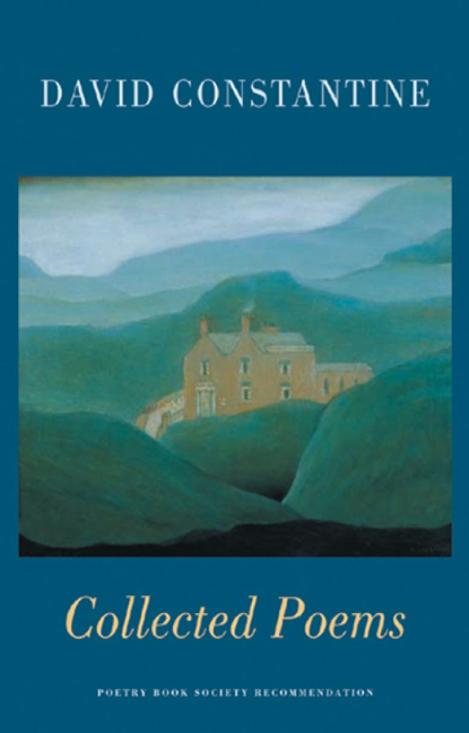Apologies. The cobweb’s a day late. It was half written yesterday when the dishwasher started to flash warning signs and to cease work mid-cycle. It turned out after some time that the impeller on the pump was jammed with a bit of broken glass. Or, because you’re keen on poetry, a shard. Anyway, it involved some finicking with tweezers and a lot of mopping. All is now well, so on with the post.

The thing about poetry readings is you pays your money (or, more often, don’t) and you takes your choice. We’ve been to poetry nights where the poet(s) and organisers outnumber the punters; one remarkable one in Bradford where the normally designated pub room was full of sleeping bags…….some may have been occupied. And those where the floor is taken by a manic street preacher who cannot be persuaded that the open mic is not the place for his grievances. The ones where the poetry is buried under an avalanche of jukebox and drunken revelry from an adjacent room. One memorable one where the poetry competed with Morris Men in the street outside. Ones where an audience member grows increasingly puzzled until s/he realises it’s not a Union Branch Meeting after all.
And there are poetry nights that are memorable simply because they make you feel good about yourself, about poetry, about the human condition. It was like that last Thursday at The Albert Poets in Huddersfield, not just because of the quality of the poetry, which was great, but also because there wasn’t even standing room. The Albert’s back room these days houses a pool table, and the poets are now out in the front bar, right by the front door on to the street. It’s an interesting space, and becomes even more interesting when a whole bunch of lovely folk hire a minibus and turn up in numbers. It happened in November when Ian Parks (who will, before too long, be a guest poet) was reading with Steve Ely and Smokestack Books editor, the splendid Andy Croft, and were supported by travelling fans from Mexborough…a bit like football, or music. Apparently, they liked it so much that they came again last Thursday to support Neil Clarkson, Emma Storr, Mike di Placido and Mexborough poet,Mike O’Brien, featured below. You might just see the orange barriers outside the door. The council were digging up the street, with drills and mechanical diggers. Which is always interesting.
And Mike Di Placido displayed, courtesy of Mark Hinchcliffe, one of Ted Hughes’ Mont Blanc pens, about which he’s written a belter of a poem in his collection ‘Crow flight across the sun’. It was a special night. Some of them are.
In and among all this are memories of poetry nights where you heard a poet for the first time, one who reads something that stops you in your tracks, makes you sit up and pay attention. Almost all of the poets who have been guests on the cobweb are in this category. Nearly all the contemporary poetry I own has been bought at readings (including some on residential courses) where I heard these poets for the first time. (most people knew about them already, but that’s not the point, is it?). Ruth Valentine, Steve Ely, Rebecca Gethin, Christy Ducker, Jonathan Edwards, Roy Marshall, Jane Clarke, Shirley McLure…..and so on and so on. Which brings us nicely to today’s guest and (un)discovered gem.
In December I drove over the M62 to Liverpool for the launch of Coast to coast to coast 2, at the Open Eye Gallery on the waterfront near the Pier head. It was a lovely cold night, and I’d forgotten how nice it is to walk, all wrapped up, through mainly deserted spaces like the Albert Dock, and to enjoy light on water. It was like being a student in the 60s again. The world bright, new-minted. I’m hoping to dedicate a post to Coast to coast… in the very near future. Enough to say it’s the brainchild of Maria Isakova Bennett and Michael Brown, and they produce limited- edition, fabric-covered and handstitched pamphlets.

They’re flooded with submissions whenever they invite them, and they attract ‘names’. Their second pamphlet opens with a stunner from John Glenday. There are poems from Suzannah Evans, Stephanie Conn, Paul Stephenson, Rebecca Gethin…
It was a splendid launch, with poets from all over, and one of those readings where I heard lots of poets for the first time. Charles Lauder Jr., Robin Houghton and the one with opening lines that jumped out at me from the page..a poem by today’s guest Ken Evans
“(where no DNA, prints or dental records exist, jewellery helps identification)
What survives is love, and jewellery –”
The whole poem follows shortly, but first, I’ll let Ken introduce himself..it’s a fascinating story of his arrival in this odd world of writing poems.
“I find a lot of people come to poetry through crisis – break-up; divorce; a death; redundancy; an unexpected rift in the weave; an addiction, or the journey from addiction; or simply a mid-life loss of way. This last, though less dramatic, is just as debilitating – a creeping sense of alienation, that won’t be denied.
My own moment came after donating a kidney to my sister who had lupus. An incurable but not necessarily killer-disease, she’d reached the stage of dialysis. Without a donor, it can be a seven-year wait for a good match. Often, twice that. The op. went well, but left me with a collapsed lung (re-inflatable) and a loss of purpose (less easy to breathe air into.)
My job seemed pointless and stressful. While presenting, I started swaying and for an instant, lost all depth of field, so that the person farthest from me in the room seemed as upfront and close as the person in the front row. Unnerving. A cardiogram suggested a small stroke – a TIA (Transient Ischaemic Attack.)
[I’ve spent time speculating about the subtext of the gap that Ken leaves between this paragraph and the next. It’s one of those ‘In one bound he was free’ narratives!
“A kidney short, but an Arvon course up, I was away. A Master’s in Poetry at Manchester University under the brilliant John McAuliffe, Vona Groarke and Frances Leviston (and the then-Writer-in-Residence, Colette Bryce), and I was hooked.
Placings in Poets & Players; the Bridport; Troubadour; the National Poetry Prize longlist; Bare Fiction and the Nine Arches Press ‘Primers’ series – all boosted self-confidence, and made me start to think I’ll have a shot at this poetry-stuff, and I began living for the time I could steal at the keyboard/notebook.
I read all the time – as of course, all workshop-leaders tell us we must: mainly lyric North Americans like Henry Cole, Carl Phillips, Jack Gilbert (all recommended by John McAuliffe.) I also learned of the longer and downbeat, wry conversational line of Karen Solie and Louise Gluck; the density of Jorie Graham and the dazzling Sharon Olds, Brenda Shaughnessy, as well as Kay Ryan’s tauter and shorter lines, while Billy Collin’s apparently effortless way with verse won me over.

In 2016, I won Battered Moons, and published a pamphlet, ‘The Opposite of Defeat, with Eyewear Publishing, as well as making runner-up, in the lovely Jacky Kays’ generous judgement, in Poets & Players.
………………………………………………………………………………………………………………………………………
There you go. And now I’m delighted to share some of his poems with you. Let’s start with the one that caught my eye at that December book launch.
True Forensic
(where no DNA, prints or dental records exist, jewellery helps identification)
What survives is love, and jewellery –
a Deposit Box in a tower-basement,
hennaed by heat, gold and sapphire, ruby,
diamonds burnished to a glitter,
scorched from their settings to outshine
their blackened fixtures.
Limbs, so firm and clasped in life,
burn lightly as a willow-branch, browning
leaves, a wick of fat beneath.
Flames dance upon our face, eyes.
The ring on a finger is an emissary
from a thin wrist of skin and time,
shrunken to a flare of alchemy,
distilled to what remains, the opaque,
a flaming geometry.
Our fire-licked embrace cannot shake
the faithful sleep of a Pompeiian dog,
the Viking amethyst, sunk in taiga,
that heaven, crackling, thirty floors above
our heads, brought down upon
the precious, and our semi-precious
Two things struck me straight away. The first was the texture of the writing, the consonants, the near rhymes that tie it together. It sings out to be read aloud. The second was the unblinking way it opens by borrowing from Larkin, and then subverting my expectations by substituting ‘jewellery’ for ‘love’. And the odd juxtaposition of ‘tower’ and ‘basement’. It all jumped off the page at me. And then I was taken by the notion that gems may have as much provenance as DNA is establishing our identity. It’s an idea that bothers, like grit in a shoe.
The fourth stanza is unnerving in the way it sets up the body as fragile, pliant and flammable. I get an after image of an auto da fe. I have to say that I jumped to the conclusion that this was a Grenfell Tower poem. Ken told me that it predates Grenfell. But Grenfell becomes one more layer of meaning in a poem of layers and strata. It was this poem and Ken’s reading of it that made me ask him to be a guest and send me some more.
Maybe it’s because I’m fascinated by the narratives of early polar exploration that I chose the two that I did. Fire and ice.
Orange
(based on Mawson’s diary, Antarctica, 1912)
at the food depot, two oranges on a crate under
the tarp. i can’t eat, even though i crave them.
their colour avalanches in my eyes.
cocaine and zinc-sulphate for snow-blindness.
i love such men that would leave them here.
if I perish, i am my last photograph, bent-double
in a hundred-knot wind, snow flying
from my shovel, skating my tripod legs away.
our last husky ate her puppies, which is normal.
we boiled her friends, the paws being toughest.
snow-bridges cave-in, their thunder is company.
a petrel flew into my sled from nowhere.
young Metz raved and broke a tent pole.
‘veh,’ he said, dying in my blistered arms.
i hired him for his hilarious English accent.
a climber, glaciologist, i thought him an idler.
he soils himself, i need his sleeping bag.
i am too weak, no, too lonely, to bury him.
the yellow lips, the other colour in the landscape.
I chose this for the ‘voice’. Maskwearing is liberating, but it’s harder than it looks to find the rhythms of a ‘voice’ and to sustain them. I like the way the tone is set by two phrases
i thought him an idler / he soils himself,
the way they act like a tuning fork for the rest of the poem. How do you read this narrator? If you were an actor, how would you imagine him? A man impatient of weakness in himself and in others. Something of a moral snob, and determinedly stiff-lipped, laconic, sardonic.
our last husky ate her puppies, which is normal.
I love the way the two points of colour, the intensity of the orange, the sallowness of the yellow, seem to dazzle in a monchrome world It’s a very painterly poem, this, and a carefully managed one. As is the last one for today which attends to the other narrative of polar exploration; Scott and Shackleton and Amundsen have their heroic/tragic/triumphant/epic journeys. We remember them, the gallant frontline troops, and pay less attention to support systems that made their stories possible. We tend to forget the patient work that has to go on for months and months of no sun, no day. Which is why I chose this poem, for it’s shift of perspective, and I suppose, for the dark humour.
At the Amundsen-Scott Research Station
Night came months ago and stayed ever since:
the moon, not waxing or waning, hangs high,
a mothball in a corner of a dark cupboard,
constant as the wind, a feral pet we feed outside,
seal air-locks against to stop the rasping lick:
we know all our moods, better than our own faces
fractured in iced-up port-holes. Each day arriving
minus thirty-eight, wind-chill off the scale.
Our work is talk, sensitive in the silence to each
blip or whirr of our instruments, an exact spot
the needle touches on the dial of the jet-fuel
in our generator. We dream in half-tones,
our only sunset a screensaver, for memory.
After homemade-hooch (no blow at the Pole
to wipe minds white) and a series of box-sets,
we play a game of who we’d eat first if all else
fails. Irrationally, for a lab full of scientists,
the men say the women, the women, the men.
So, there you are. A day late, for which I’m sorry, but I hope you’ve enjoyed Ken Evans’ poems and voices as much as I have, and that you can’t wait to buy his book. As for next week….I don’t know yet. It’s probably the dark days and early nights. It’s good job I’ve never been sent to the Antarctic.
Share this: Facebook Twitter













